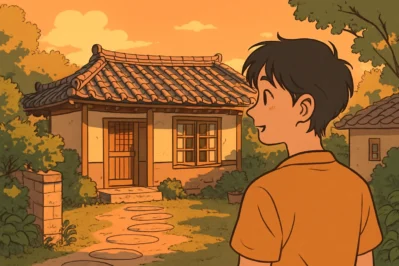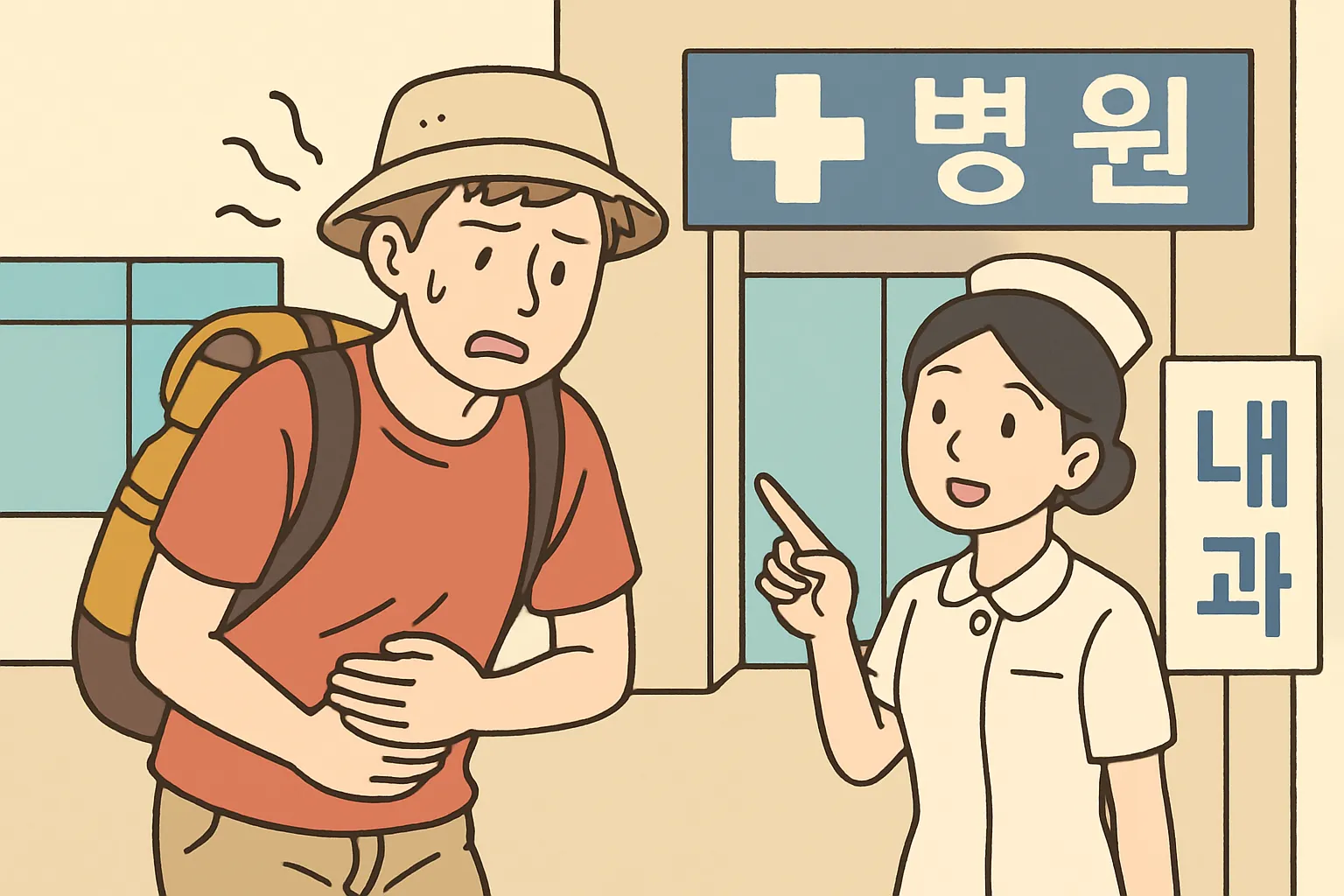My Old Korean Home: Phrases to Share Your Memories!
Hello! This is [Maeil Hangul], here to upgrade your Korean skills!
Have you ever wanted to share stories about your childhood with a Korean friend? Talking about where you grew up is a wonderful way to connect with people. Today, we’re going to learn how to describe a house you used to live in.
Lately in Korea, there’s a huge “newtro” (뉴트로, new + retro) trend! People love reminiscing about the past, from old songs to vintage fashion. So, learning to talk about your own memories is the perfect way to join the conversation. Let’s unlock those memories and learn some useful Korean expressions!
Core Expressions You Need to Know
Here are some key phrases to help you paint a picture of your old home.
1. 제가 살았던 집 (The house I used to live in)
- Pronunciation [Romanized]: jega saratdeon jip
- English Meaning: The house that I used to live in
- Detailed Explanation: The grammar pattern -았/었던 (-at/eotdeon) is a time machine! You attach it to a verb to describe a noun based on a completed action in the past. It’s perfect for talking about things that are no longer the case.
- 살다 (to live) + -았/었던 → 살았던 (used to live in)
- 가다 (to go) + -았/었던 → 갔었던 (used to go to)
- Example: 제가 살았던 집은 작았어요. (The house I used to live in was small.)
2. 마당이 있는 집 (A house with a yard)
- Pronunciation [Romanized]: madang-i inneun jip
- English Meaning: A house with a yard
- Detailed Explanation: This is a super useful structure for describing features. You take a noun (like 마당, yard), add -이/가 있는 (-i/ga inneun), and then add the place. You can swap
마당for anything!- 마당 (yard) + 이 있는 집 → A house with a yard.
- 수영장 (swimming pool) + 이 있는 집 → A house with a swimming pool.
- 예쁜 정원 (pretty garden) + 이 있는 집 → A house with a pretty garden.
3. 아늑하다 (To be cozy)
- Pronunciation [Romanized]: aneuk-hada
- English Meaning: To be cozy / snug
- Detailed Explanation: This is a beautiful adjective to describe a place that feels warm, comfortable, and safe. It’s the perfect word for a beloved childhood home. Remember to conjugate it in the past tense when telling a story: 아늑했어요 (aneuk-haesseoyo).
- Example: 제 방은 작았지만 아주 아늑했어요. (My room was small, but it was very cozy.)
4. …이/가 그립다 (I miss…)
- Pronunciation [Romanized]: …i/ga geuripda
- English Meaning: To miss (someone or something)
- Detailed Explanation: This expression is full of emotion. You use it when you long for a person, place, time, or memory from the past. It’s more sentimental than
보고 싶다(I want to see you/I miss you), which is typically used for people.- Example: 어렸을 때 살았던 집이 그리워요. (I miss the house I lived in when I was young.)
Example Conversation
Let’s see how these expressions work in a real conversation. Friends Minjun and Sofia are watching the popular K-drama “Reply 1988.”
- Sofia: 와, 이 드라마에 나오는 집들 정말 정겹다. 요즘 아파트랑은 완전 달라.
- (Wow, the houses in this drama feel so nostalgic. They’re totally different from modern apartments.)
- Minjun: 맞아요. 제가 어렸을 때 살았던 집이 생각나요.
- (Right? It reminds me of the house I used to live in when I was a kid.)
- Sofia: 진짜? 어땠는데?
- (Really? What was it like?)
- Minjun: 작은 마당이 있는 집이었어요. 크진 않았지만 정말 아늑했어요.
- (It was a house with a small yard. It wasn’t big, but it was so cozy.)
- Sofia: 와, 좋았겠다.
- (Wow, that sounds so nice.)
- Minjun: 네. 가끔 그 집이 너무 그리워요.
- (Yeah. Sometimes I really miss that house.)
Culture Tip & Trend Deep Dive
As we mentioned, the “Newtro” (뉴트로) trend is huge in Korea! It’s all about the younger generation finding “new” ways to enjoy “retro” culture.
Dramas like “Reply 1988” (응답하라 1988) are a perfect example. They became massive hits because they perfectly captured the look and feel of life in the 80s and 90s, making older generations nostalgic and younger generations curious. The show focuses heavily on neighborhood life where everyone knew each other, and the houses themselves were central characters in the story.
So, when you use today’s phrases like “제가 살았던 집이 그리워요” (I miss the house I used to live in), you’re tapping into a very powerful and trendy emotion in Korea right now. It shows you understand not just the language, but the cultural feeling of nostalgia that is so popular today!
Let’s Practice!
Time to review what we’ve learned.
- Fill in the blanks: How would you say, “I miss the cozy house with a yard that I used to live in”?
제가 ___________ 마당이 있는 ___________ 집이 그리워요.
(Answer: 살았던, 아늑했던)
-
Your Turn! Using the pattern
…이/가 있는 집이었어요(It was a house with a…), describe one feature of a house you remember. For example:큰 창문이 있는 집이었어요(It was a house with a big window).
Share your answer in the comments below using the expressions we learned today! We would love to read about your memories!






